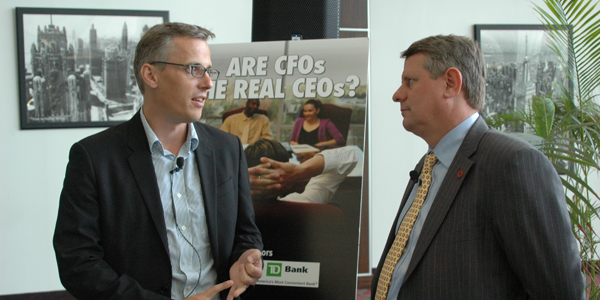CFOs see changing roles
Antoine Remy, CFO and vice president of finance for The Dannon Co. Inc., has two obsessions ”“ and one feeds into the other.

The first is to make sure Americans eat more yogurt. The second is to make sure that Dannon, based in White Plains and one of the world”™s largest yogurt producers, continues to report increased sales and growth.
Remy recently was joined by several Westchester and Fairfield County CFOs and business experts to discuss the changing role of chief financial officers in the post-recession corporate environment.
The roundtable forum in White Plains was hosted by the Westchester County Business Journal and its sister publication the Fairfield County Business Journal.
Despite the ever-present reminders of the recession in boardrooms and on balance sheets, Remy said the job of a CFO is not to automatically shoot down a bold idea but to find a way to transform it “into a profitable and sustainable proposal.”
“I wouldn”™t kill the idea at first because of financial constraints ”“ I would first look at what”™s going to drive growth,” Remy said. “Growth is what”™s missing today. It”™s not a matter of trying to do it cheaper or to do less ”“ it”™s about going back to growth.”
Other roundtable panelists were Russell Boyle, partner in the New York City office of Egon Zehnder; Matthew R. Bud, managing partner of The Financial Executives Consulting Group in Darien, Conn., and chairman of The Financial Executives Networking Group in Westport, Conn.; Charles T. Field, senior vice president and CFO of The Westchester Bank and The Westchester Bank Holding Corp. in Yonkers, and Patrick Lapera, CFO of Bacarella Transportation Services Inc. in Shelton, Conn. Moderating the discussion was Steven F. Kirn, partner in the Stamford, Conn., office of McGladrey L.L.P.
Not only has the economic crisis thrust CFOs into the spotlight as risk managers, but it has also given them a more prominent role in day-to-day business operations, Lapera said.
“I think it gave the CFO a little broader business exposure, which I view as a really good thing,” he said. “Maybe it brought some light to the value of the CFO in being able to respond in a crisis situation.”
Where traditionally the CEO has supplied the long-term vision and the CFO is responsible for crunching numbers, analyzing risk and providing discipline, Field said more is expected from CFOs today.
“When I used to go out and we were raising capital (before launching in 2008) ”¦ I basically said to my CEO, ”˜You”™re the color commentary and I”™m the play-by-play guy.”™ He would provide the leadership and the vision and I would take a look at the numbers,” Field said. “Now I think people want to see what the depth of the CFO is.”
With interest rates and property values historically low, Bud noted the temptation to invest and expand. However, he said, it is important that CFOs continue to act as the last line of defense in order to protect a company”™s bottom line.
“The grand visions are all very well when you have plenty of money to throw around,” he said. “When resources are scarce, you count on the CFO to hold people back.”
But, panelists said, the immediate reaction shouldn”™t be “no.”
“I”™m not the guy who is just here to say no, from a budgetary perspective,” Field said. “I”™m here to say, okay, how do we get it done, how do we get to where we want to be?”